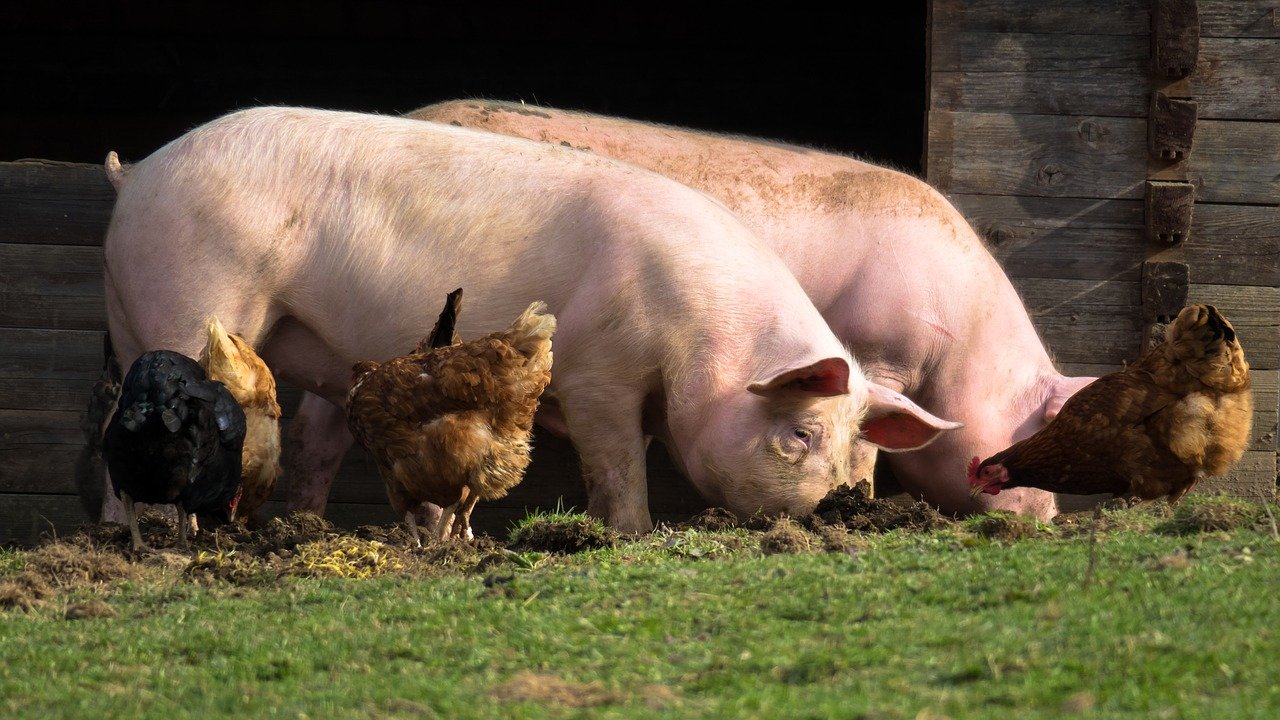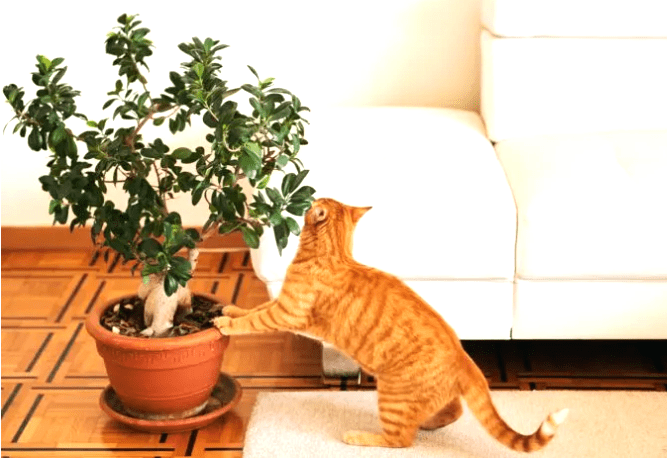What are Bonsai trees?
Bonsai is the art of growing dwarfed varieties of plants, usually trees and shrubs as ornaments in pots and vases.
Miniature varieties of trees or shrubs, usually modified genetically are grown to add aesthetics to the interior decor, increase the feel of nature, and for religious growth in Buddhism.
Are Bonsai Trees Poisonous to Cats and Dogs?
Growing bonsai trees as a pet parent is difficult because most bonsai trees are poisonous to pets.
Common bonsai trees are Sago palm, Ficus retusa, Chinese elm, Jade, Juniper, Boxwood, Azalea, Cherry, Plum, etc.
According to The American Society for the Prevention of Cruelty to Animals (ASPCA), most bonsai trees have chemical agents in their stems, leaves, or fruits that can cause gastrointestinal issues for pets like dogs and cats.
Sago Palm, for example, has Cycasin agents that can cause severe GI symptoms and lead to the death of animals when they ingest the leaves of this plant.
Some bonsai can cause skin irritation or respiratory problems in animals.
Pets such as dogs and cats are curious animals that may chew on the leaves or stem of your bonsai potted plant, leading to accidental poisoning.
Are Ficus Bonsai trees poisonous to cats and dogs?
Ficus macrocarpa, also known as Indian laurel, gajumaru, Malayan banyan, or Chinese banyan is a popular bonsai plant that has many varieties.
Unfortunately, none of the ficus ginseng varieties should be grown where pet safety is important.
The sap can cause symptoms such as vomiting, diarrhea, lethargy, and even more reactions.
Which Bonsai trees are not Poisonous and Safe for Cats and Dogs?
While Bonsai trees are considered toxic to pets because they can irritate their mouth, nose, skin, or stomach when nibbled or ingested, you can still grow some other safe plants as bonsai. such
Yes, bonsai plants such as bamboo palm, juniper, or prayer plant are safe for both dog and cat pets when they smell or bite their leaves.
Choosing safe bonsai plants for pets is not enough to protect your feline and canine friends since some of these safe plants may cause mild reactions when a chunk of the plant part is consumed, you should also consider safety precautions.
You should keep bonsai plants out of the reach of your pets. You can place it in an area that is inaccessible to your dog or cat.
Make sure you use pet-safe potting mixes without any toxic materials.
Use organic fertilizers instead of chemical fertilizers in grooming your bonsai tree.
Check your bonsai tree for any sharp or hazardous elements from time to time, and remove them if necessary.
Conclusion
Before you grow bonsai trees indoors or outdoors, make sure it’s safe for the kind of pet you have.
You can also grow other ornamental plants rather than dwarfed varieties of trees.
Bonsai trees and shrubs demand great care to maintain their miniature size, so you should weigh the advantages and the disadvantages before making a decision.
Also, bonsai trees often require specific soil and fertilizers, pruning, and wiring to maintain their health and shape.
Leaving sharp or protruding wires and branches of safe bonsai trees can pose risks to your pets as they can easily get injured if they come into contact with these sharp elements while exploring or playing around them.








